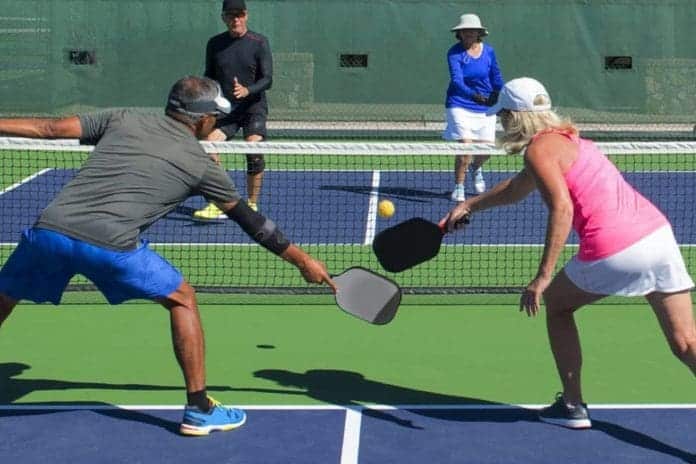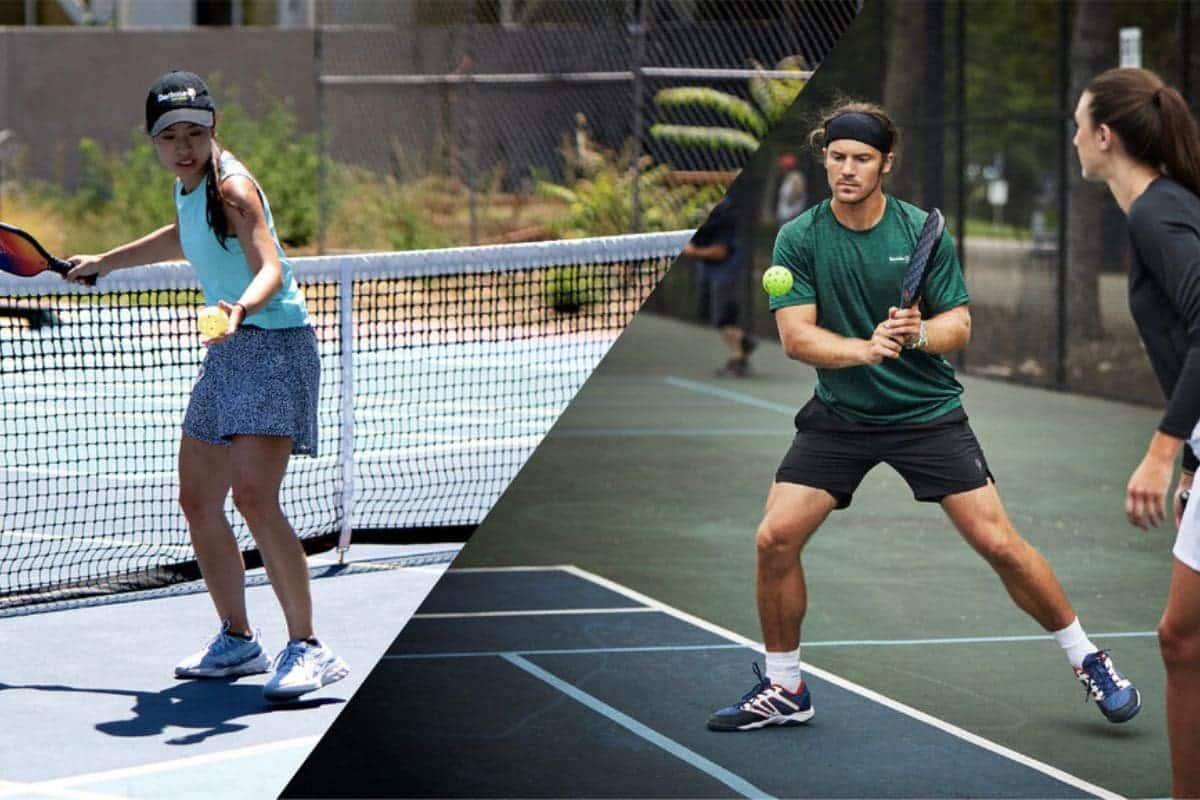Effective Doubles Communication in Pickleball: In doubles pickleball, as in any team sport, communication is the bedrock of success. While on-court talk is vital during a match, laying the groundwork before the first serve can be equally crucial. Here’s a comprehensive guide on what to discuss with the partner before stepping onto the court, setting the stage for a winning performance.
1. Analyzing the Opponents in Pickleball
Knowledge is power, especially when it comes to understanding opponents. If a player has faced their opponents before, sharing insights about their tendencies can be invaluable. For example, if the opponents struggle with high lobs or exhibit particularly aggressive play, this information can be used to develop a strategy that exploits their weaknesses.
For instance, if the opponents frequently hit their thirds into the corners, a well-timed Erne could be a key move. Even seemingly obvious tendencies should be highlighted, as they might not be apparent to a partner who hasn’t observed them. Every bit of information can contribute to a more effective game plan.
2. Targeting Specific Players on Returns
Deciding which opponent to target on the return of serve can significantly influence the outcome of the match. This choice will determine who takes the bulk of their team’s third shots.
Target the player who is more prone to errors on third shots. It is advantageous to face the type of shots that one handles better, whether those are drives or drops. Additionally, focusing on the player who is less adept at net play or who is less likely to poach effectively can further tilt the odds in one’s favor. By strategically directing play towards these areas, one can exploit the opponents’ weaknesses and enhance their chances of success.
Targeting the player who prefers to crash the net can be a strategic move to keep them at bay and prevent them from capitalizing on quick points.
3. Identifying Strengths and Weaknesses
Discussing strengths and weaknesses is essential for any partnership, whether it’s their first time playing together or they’ve been partners for years. Players need to be clear about their playing styles. If one player excels in a soft game while the other is more aggressive, they should use this contrast to their advantage.
On the other hand, if both players favor a soft game, they should focus on a strategic approach, such as dropping thirds and forcing opponents into a dinking battle. By aligning their strategies with their respective strengths, they can enhance their effectiveness on the court.
4. Avoid Certain Shots in Pickleball
Understanding where not to hit the ball can be as strategic as knowing where to aim. If one opponent has a formidable forehand or exceptional backhand, plan to avoid these areas. Even though on-court dynamics may sometimes lead to unintentional shots, sticking to a plan of avoiding their strengths will generally yield better results.
5. Generating Offense
Effective offense generation is crucial for inside-out scoring. Instead of merely reacting to the flow of the game, focus on creating opportunities through smart shot placement. Shots down the sidelines can force the opponents wide, opening up the middle for potential putaways.
Utilize aggressive tactics such as shake n’ bakes and poaching to put pressure on the opponents. If one player is notably more athletic, let them take on the role of “creator” while the other provides support, especially in handling third shots.

News in Brief: Effective Doubles Communication in Pickleball
Pre-match communication with the partner is a critical element in doubles pickleball. By analyzing opponents, targeting specific players, understanding the game, avoiding opponents’ strengths, and devising offensive strategies, the players set themselves up for a more cohesive and successful performance on the court.
ALSO READ: Natchez Adds Pickleball to Kickball Tournament for a Bigger Community Bash


